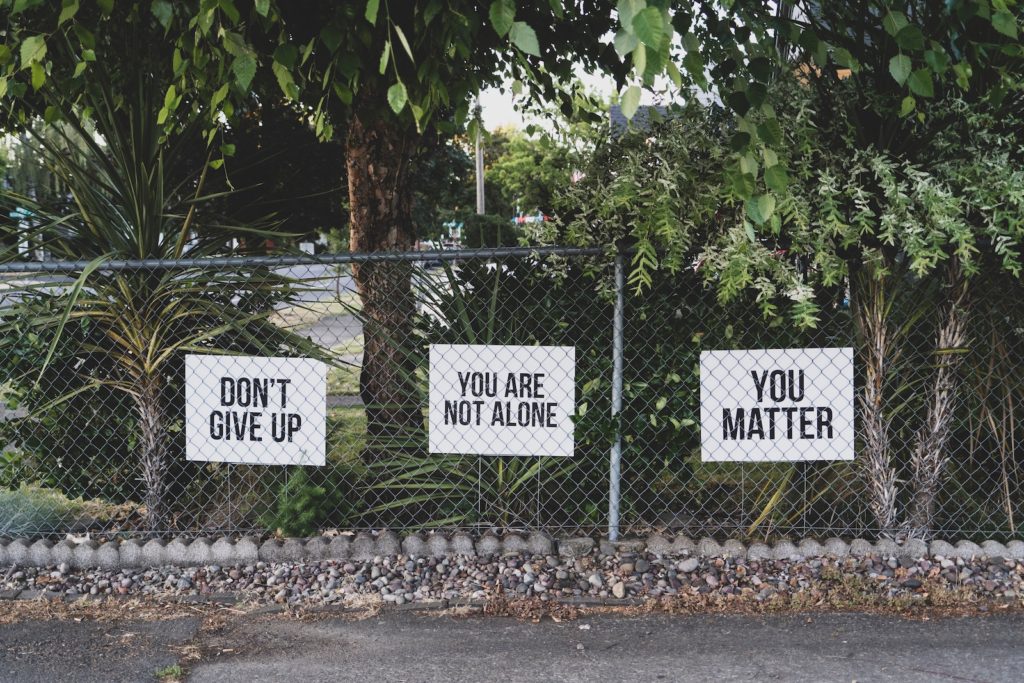The decaying state of our online and physical communities and the dread of what the future holds in the face of the unmitigated climate changes we witness
today can sometimes result in very negative impacts on our mental health. Around the world, governments continue to subsidise fossil fuel projects despite the
consequences of climate change.
People across the globe have already been forced from their homes as a result of climate-related disasters and this leaves the rest of us feeling anxious; for
ourselves but especially for the safety and wellbeing of others.
Parents are also under increased pressure to teach their kids how to be conscious citizens and care for the environment. This is in addition to worrying about
youth anxiety and depression.
Coupled with the fact that today, the number of people afraid to fail, especially in their chosen careers, is higher than ever; it is not difficult to see that certain
measures have to be put in place to minimise the feeling of despair when times get tough. Which is where mental resilience comes in.
Credit: Dan Meyers/Unsplash.
Being mentally resilient will help you cope with your problems calmly and recover from any bumps on your road much quicker. Whether these road bumps are
minor (like getting a parking fine or not getting that job you wanted) or disastrous on a larger scale (hurricanes or terrorist attacks), here are some easy ways
you can strengthen your mental resilience to cope better with difficult situations:
1. Understand that you can’t control everything.
One of the best ways you can strengthen your mental resolve is by becoming better at picking your fights. Cognitive-behavioural psychotherapist Donald
Robertson, who specializes in the relationship between philosophy, psychology and self-improvement, in his book Stoicsm and the Art of Happiness, maintains
that it’s critical to know what you can control and what you can’t, as the only thing you really have control over is your deliberate thoughts. All of the world’s
problems are not yours to solve and frankly, you can’t control all of them even if you wanted to. If you are able to make a distinction between things you can
control and things you can’t, you can ensure your energy and willpower is not wasted on the latter.
Focus on what you can control, not what you can’t.
The simple truth you should remember is that in life, you will face troubling times, there’s no way around that. You may even have a few nights where you can’t
sleep as a result of one stressor or the other. The trick here is not to lose too much sleep over things you can’t solve. The one thing you can always control is
your own response to events in your life and that’s okay.
So when you find yourself fretting about too many things all at once, stop to think of your role in terms of the solution. Even where you can’t provide lasting
solutions because you have little influence–say in the case of the Amazon fires, Brexit and even the Syrian conflict– there is often a problem you can solve in
your own life to make things a little better, even if you can’t directly solve the bigger, global problems. For example, focus on things you can control such as
implementing a daily fitness routine if you want to lose weight, or packing your zero waste kit if you want to avoid single-use plastic.
2. Make gratitude a priority.
Gratitude is a powerful human emotion and refers to a state of thankfulness. It has been defined as a deeper appreciation for someone (or something) that
produces longer lasting positivity.
Practicing gratitude is one of the greatest things you can do for your mental health, because it will help you keep things in perspective, even during the most
challenging times. When you practice gratitude regularly, you will experience more positive emotions, feel more alive, sleep better, and express more
compassion to others. You will also be better able to block negative emotions like envy, or resentment. Gratitude was shown to be psychotherapeutic in
this popular Yale study by Robert A. Emmons and Robin Stern because of its healing effect on the human mind.
So when you feel as though the weight of the world is upon your shoulders take the time and reflect on what you are thankful. You don’t have to reserve this
only for momentous occasions. You can express gratitude for a promotion at work, but you can also be simply thankful for a roof over your head or the meal you
had for lunch.
3. Do something that you aren’t good at.
There is an entire self-development industry out there telling you to focus on what you’re good at and delegate everything else to someone else. As a general
principle, this approach has a lot of benefits, one of which is that we are more likely to be happy and to perform much better when we get to focus solely on
what we do best. But focusing only on your strengths won’t help much when it comes to strengthening your mental resolve. This research study on how can be
a source of motivation and performance, for instance, shows that when people are aware of the anxiety they feel around a new challenge or goal, they are more
likely to persist at their task, and find greater satisfaction during the work.
Put differently, you often don’t need to mentally toughen up for a task if you already are good at it. Where your true strength is most tested is in situations
outside your comfort zone; so stepping outside that circle every once in a while will do good for your mental resilience. In his book Reach Professor of
organizational behaviour at Brandeis University’s International Business School and an expert on behaviour in the business world, Andy Molinsky explains that
by stepping outside our comfort zones, we are able to take chances, open a lot of new possibilities and discover things about ourselves that we would not have
otherwise discovered.
This step could be as simple as talking to a homeless person or as scary as volunteering as a speaker at the next climate march in your neighborhood, despite
your shy nature. The most important thing here is that when you occasionally dabble in things you aren’t good at, you will see your shortcomings clearer so that
you can make necessary adjustments to your mindset and work at stretching your capabilities. All of which will strengthen your mental fortitude immensely
4. Practice daily mental exercises.
The mind, like the body, needs regular mental exercise to keep it cognitively and emotionally fit. Mental toughness is like a muscle, it needs to be worked to
grow and develop and the quickest way to get there is through practice. Now there is little doubt that the extreme situations we face test our courage and mental
resolve but you don’t have to let things get to the extreme.
Pay attention to your everyday circumstances and practice strengthening your mental strength with them. It is a process that involves identifying a situation that
leads to mental stress or anxiety, isolating the thoughts and feelings that lead up to these negative emotions and applying healthier thoughts to change the
distorted thinking that often lies behind these moods.
Post time: May-08-2021




